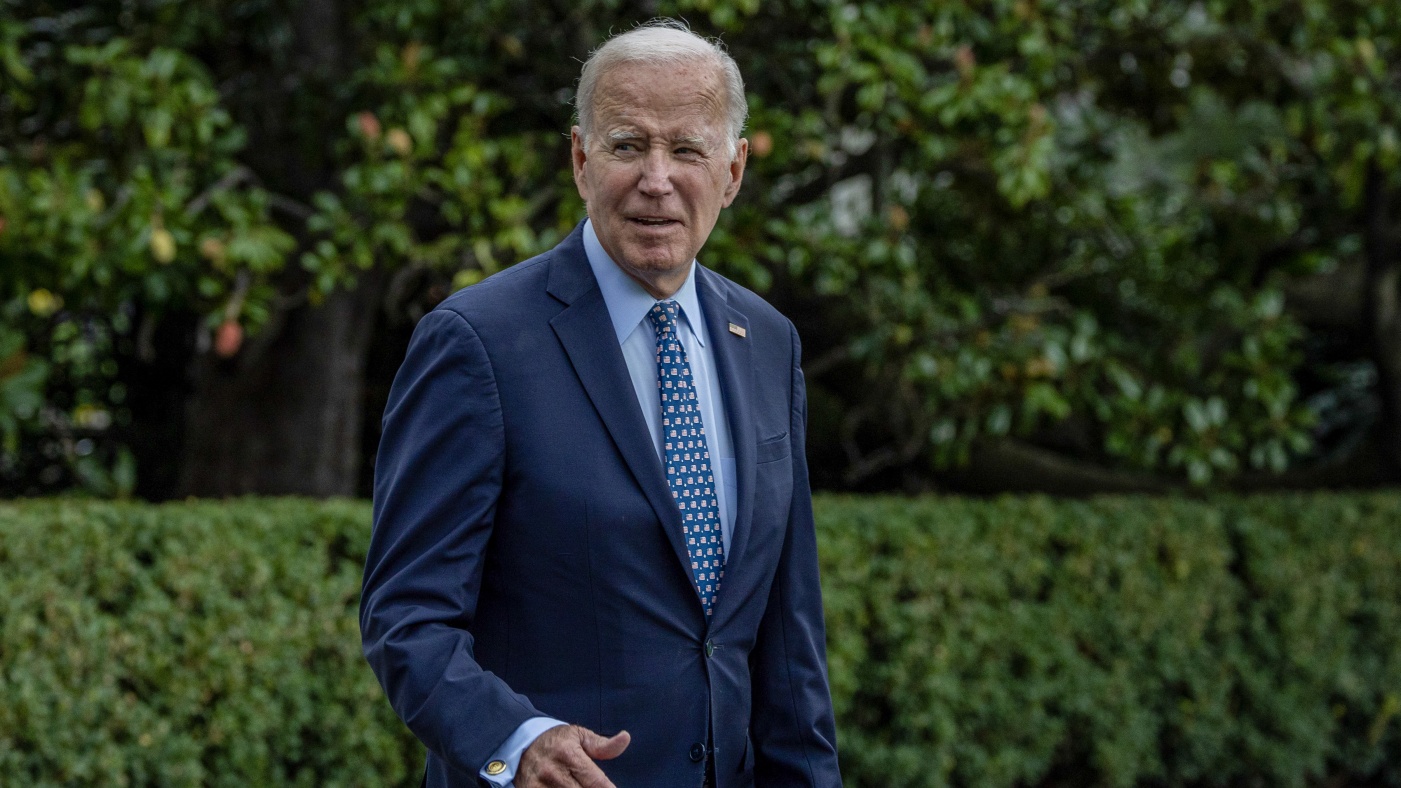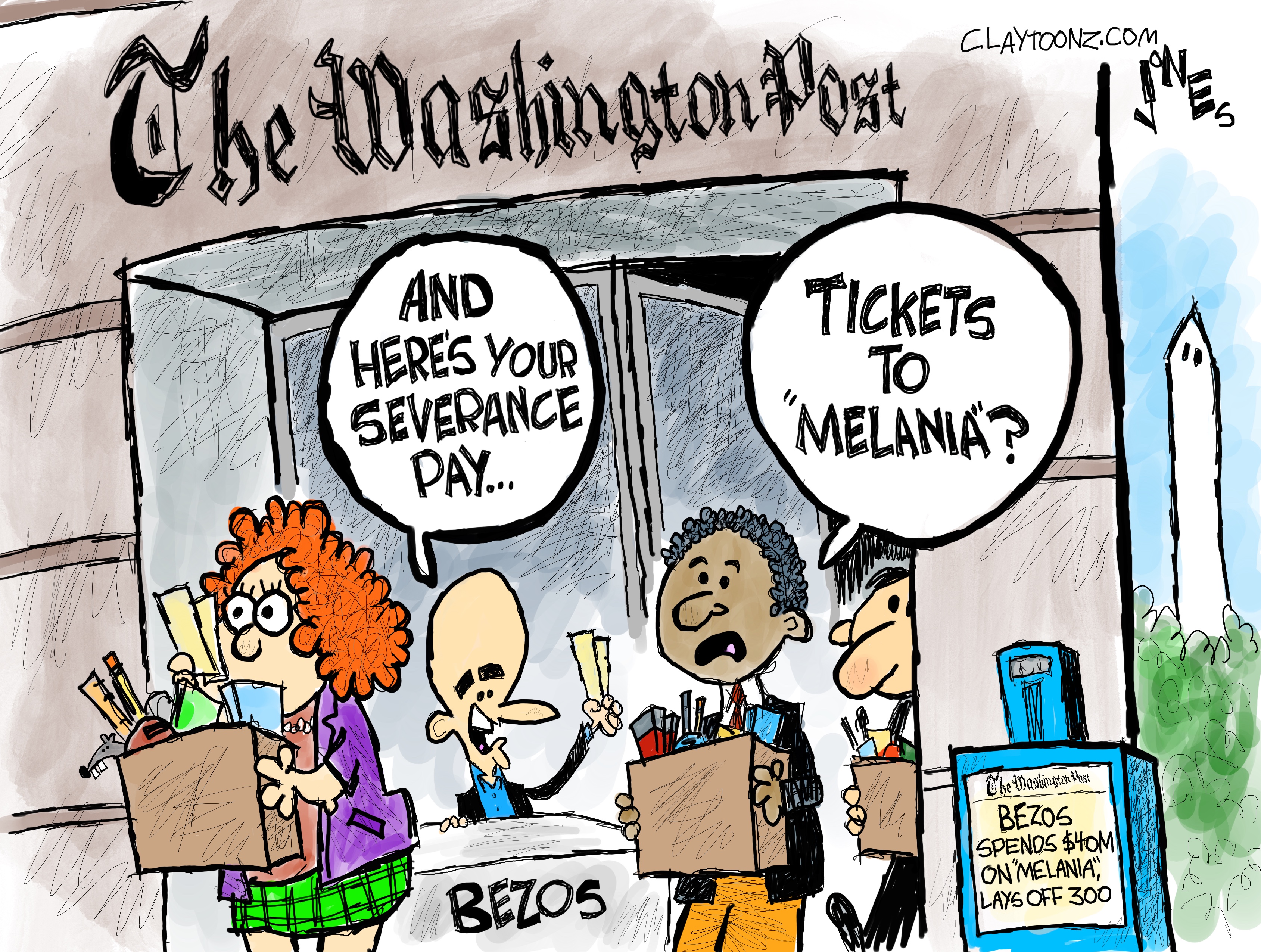US-Iran prisoner swap: has Biden given in to blackmail?
Republicans condemn $6bn deal but it could de-escalate rising tensions between the two nations

A free daily email with the biggest news stories of the day – and the best features from TheWeek.com
You are now subscribed
Your newsletter sign-up was successful
The US and Iran are completing an exchange-of-prisoners deal that analysts say could "open the door" to a de-escalation of tensions between the two nations.
Five American-Iranian dual nationals are due to be released today following a year of careful negotiations mediated by the Gulf state of Qatar. The US will also free five Iranians held in US prisons on charges of violating US sanctions.
The exchange will take place after $6 billion of Iran's oil revenue, which had been frozen in South Korea, is transferred to bank accounts in Qatar. The funds will be monitored "to ensure Iran uses the money for goods" not currently under sanctions, reported the Financial Times (FT).
The Week
Escape your echo chamber. Get the facts behind the news, plus analysis from multiple perspectives.

Sign up for The Week's Free Newsletters
From our morning news briefing to a weekly Good News Newsletter, get the best of The Week delivered directly to your inbox.
From our morning news briefing to a weekly Good News Newsletter, get the best of The Week delivered directly to your inbox.
What did the commentators say?
US President Joe Biden has "long been urged" to bring home Americans "widely regarded as hostages" and used by Iran as "political leverage", said the BBC's chief international correspondent, Lyse Doucet.
For Iran, the deal frees money earned from selling oil to South Korea, although "sources involved in this process insist these funds will be strictly controlled", said Doucet. "No funds will go into Iran," the sources stressed. "Only humanitarian transactions, including food, medicine, agriculture, paid to third party vendors, transaction by transaction."
The prisoner swap has already been condemned by leading US Republicans as "a ransom payment and sanctions relief", Doucet added. But there is still "enormous relief that some prisoners are finally coming home".
Biden will be "patting himself on the back" over this deal, wrote columnist Daniel Johnson in The Telegraph. While it will mean "giving an evil regime" $6 billion, the sum is from oil revenues sequestered under sanction laws, allowing the president to claim that his deal "won't cost the US taxpayer a cent". But the reality is that Biden's "murky prisoner swap" will only "damage American prestige, encourage the Iranians to take more Western hostages, and help fund the regime's nuclear ambitions".
A free daily email with the biggest news stories of the day – and the best features from TheWeek.com
Indeed, Biden's deal "lends credibility at a crucial moment to one of the most dangerous rogue states in the world", continued Johnson. Russia's invasion of Ukraine has already "provided a showcase for Iranian drones, a mainstay of Putin's assaults on cities", he claimed. By defying UN sanctions on Russia "with impunity", Iran has "inserted itself into yet another conflict with the West". Now the prisoner exchange "risks signalling weakness, not only to the Middle East, but to America's foes everywhere".
But with the Russian-Ukrainian war continuing to rage with no end in sight, the US has a vested interest in making sure war does not break out in another part of the world, and it is "apprehensive about Iran's relations with Russia", said Al Jazeera.
Speaking to the news site, Kaveh Moussavi, an Iranian human rights lawyer and former head of public interest law at Oxford University, said that Washington is "aware that Tehran is very heavily invested in the survival of the Russian regime" and is "keen to change that narrative and also ensure Tehran is at peace with its other neighbours in the Middle East".
The prisoner swap and the release of the frozen Iranian oil fund may well have "eliminated a long-standing severe obstacle" for improving US-Iranian relations, argued Klaus W. Larres, from the University of North Carolina, in The Conversation. It will confirm to the Iranian regime that the US "is a reliable negotiation partner", which could prove to be a "crucial basis" for the reopening of formal nuclear negotiations and a return to the 2015 Joint Comprehensive Plan of Action (JCPOA).
The prisoner swap "might be a decisive step for the West in reaching a new informal nuclear limitation agreement with Iran", said Larres. In turn, it could help to stabilise the Middle East "by preventing an Israeli attack on Iran if Iran were to further develop a nuclear bomb".
What next?
It is hoped that the prisoner swap will "help build a degree of trust that creates conditions for further discussions on Iran's muscular nuclear programme", said the FT.
Even as Iran has continued to enrich uranium, the two countries have been discussing how to de-escalate tensions; proposals include Iran agreeing not to target Americans and to cap its uranium enrichment at 60% purity, a level below weapons grade, while the US refrains from imposing additional sanctions that "further strangle the economy".
The US has also reportedly been pushing Tehran to stop selling drones to Moscow, which Russian forces have used in the war against Ukraine. Tehran has denied exporting weapons to Russia to use in the war, and no agreement has been reached, according to people briefed on the talks, reported the paper.
"Still, some believe the prisoner exchange can at least help contain a nuclear crisis and ease the risks of renewed Middle East conflict."
-
 Nan Goldin: The Ballad of Sexual Dependency – an ‘engrossing’ exhibition
Nan Goldin: The Ballad of Sexual Dependency – an ‘engrossing’ exhibitionThe Week Recommends All 126 images from the American photographer’s ‘influential’ photobook have come to the UK for the first time
-
 American Psycho: a ‘hypnotic’ adaptation of the Bret Easton Ellis classic
American Psycho: a ‘hypnotic’ adaptation of the Bret Easton Ellis classicThe Week Recommends Rupert Goold’s musical has ‘demonic razzle dazzle’ in spades
-
 Political cartoons for February 6
Political cartoons for February 6Cartoons Friday’s political cartoons include Washington Post layoffs, no surprises, and more
-
 Epstein files topple law CEO, roil UK government
Epstein files topple law CEO, roil UK governmentSpeed Read Peter Mandelson, Britain’s former ambassador to the US, is caught up in the scandal
-
 Iran and US prepare to meet after skirmishes
Iran and US prepare to meet after skirmishesSpeed Read The incident comes amid heightened tensions in the Middle East
-
 Which way will Trump go on Iran?
Which way will Trump go on Iran?Today’s Big Question Diplomatic talks set to be held in Turkey on Friday, but failure to reach an agreement could have ‘terrible’ global ramifications
-
 Israel retrieves final hostage’s body from Gaza
Israel retrieves final hostage’s body from GazaSpeed Read The 24-year-old police officer was killed during the initial Hamas attack
-
 China’s Xi targets top general in growing purge
China’s Xi targets top general in growing purgeSpeed Read Zhang Youxia is being investigated over ‘grave violations’ of the law
-
 Panama and Canada are negotiating over a crucial copper mine
Panama and Canada are negotiating over a crucial copper mineIn the Spotlight Panama is set to make a final decision on the mine this summer
-
 Iran unleashes carnage on its own people
Iran unleashes carnage on its own peopleFeature Demonstrations began in late December as an economic protest
-
 How oil tankers have been weaponised
How oil tankers have been weaponisedThe Explainer The seizure of a Russian tanker in the Atlantic last week has drawn attention to the country’s clandestine shipping network